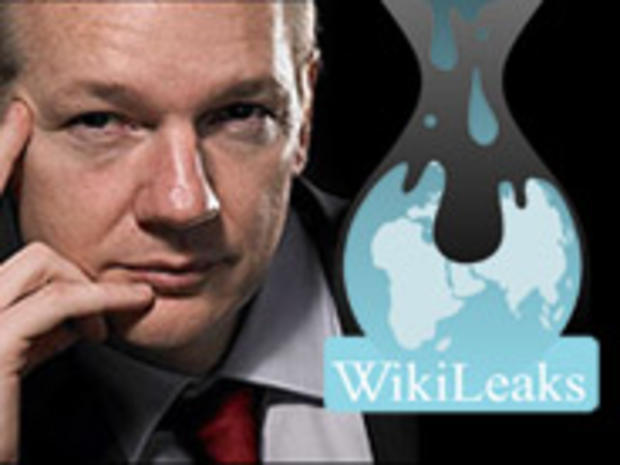WikiLeaks CableGate: December 20, Day 23
Check and update this page often for the latest news and views on the WikiLeaks saga, as well as our special report.
DECEMBER 20, DAY 23
Fact: WikiLeaks has released 1,824 of the reported 251, 287 U.S. diplomatic cables it claims to have in its possession. That means they have only released slightly less than three-fourths of one percent of the total.
[Guardian (U.K.)] US Suspected Allen Stanford Long Before ECB Deal
"More than two years before he touched down in a helicopter at Lord's cricket ground bearing $20m, US diplomats were so concerned about rumors of 'bribery, money-laundering and political manipulation' surrounding Allen Stanford that they avoided contacting him or being photographed with him."
[Guardian (U.K.)] Syria Believed Israel Was Behind Sniper Killing
"It was late in the evening of 1 August 2008 in the Syrian coastal city of Tartous when the sniper fired the fatal shot. The target was General Muhammad Suleiman, President Bashar al-Assad's top security aide. Israelis, the US embassy in Damascus reported, were 'the most obvious suspects' in the assassination."
[Guardian (U.K.)] Bulgarian Nuclear Project "Dogged by Safety Concerns"
"One of Britain's biggest energy suppliers, which wants to build half a dozen nuclear reactors in the UK, helped develop one in Bulgaria which was 'dogged by ongoing serious safety concerns'".
[Guardian (U.K.)] UK Businessmen "Overeducated" Says Richard Branson
"Perhaps it's because he left school at 15 and ran his own business while his peers were still studying. But Richard Branson believes that the British education system does not serve budding businessmen and women well".
[The Guardian] Britain's biggest defense contractor, BAE, sold the Tanzanian government an overpriced radar system, and after the head of Tanzania's anti-corruption bureau investigated the "dirty deal," his life was threatened, according to a leaked U.S. diplomatic cable. Edward Hoseah,the chief anti-corruption prosecutor in Tanzania, told a U.S. diplomat that "his life may be in danger," after looking into the arms deal. He told the diplomat that, after his investigation began, "he frequently received threatening letters."
[Stars and Stripes] Reporters at Stars and Stripes, the U.S. military's official newspaper, are disturbed by their editors lack of comment over the military-wide ban on looking at The New York Times website and other sites linked to the WikiLeaks CableGate drama. Their ombudsman writes: "The lack of guidance has left every journalist there with a difficult and unfair individual choice: risk committing some violation, even inadvertently, with career or even legal consequences, or not do their jobs properly."
[Comedy Central] One from the vault: Stephen Colbert met with Julian Assange in April, 2010, to talk about WikiLeaks release of a video allegedly showing two Reuters journalists being gunned down by US helicopter fire. The seven-minute interview features an unusually serious Colbert and a typically defiant Assange.
| The Colbert Report | Mon - Thurs 11:30pm / 10:30c | |||
| Julian Assange | ||||
| ||||
[Reuters] Former UN Chief Kofi Annan offered Zimbabwe President Robert Mugabe a secret deal that included retirement in an overseas haven if he stepped down, according to a leaked diplomatic cable. The deal, rejected by Mugabe, ruler of destitute Zimbabwe for 30 years now, likely guaranteed Mugabe a financial package from Libyan President Muammar Gaddafi and a safe haven, the cable showed.
[CBS/AP] A storage facility housing Yemen's radioactive material was unsecured for up to a week after its lone guard was removed and its surveillance camera was broken, a secret U.S. State Department cable released by WikiLeaks revealed Monday.
The message, dated Jan. 9, relates the worries of a Yemeni official, whose name was removed, about the unguarded state of a National Atomic Energy Commission facility. He pushes the U.S. embassy to urge his own government to secure the material.
[Guardian] The WikiLeaks news site of record, the Guardian, outlines the efforts of U.S. diplomats to deal with the challenge of keeping nuclear materials out of the hands of terrorists intent on adding atomic bombs to their arsenals.
"The leaked cables tell hair-raising tales of casks of uranium found in wicker baskets in Burundi, a retired Russian general offering to sell 'uranium plates' in Portugal, and a radioactive Armenian car on the Georgian border," wrote Julian Borger and Karen McVeigh of the Guardian.
DECEMBER 19, DAY 22
[Guardian] WikiLeaks cables: Egypt "turned down" black market nuclear weapons deal
Click here for more WikiLeaks news from the weekend and earlier.
